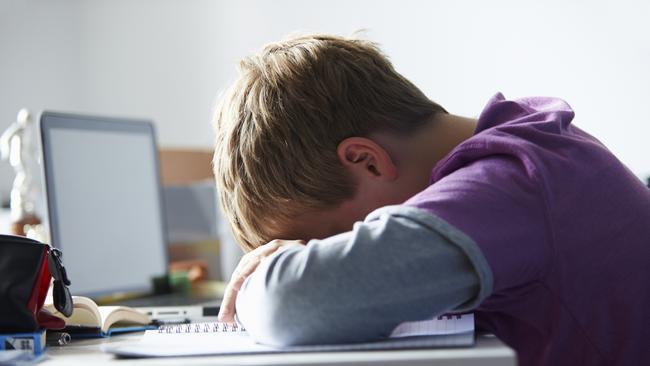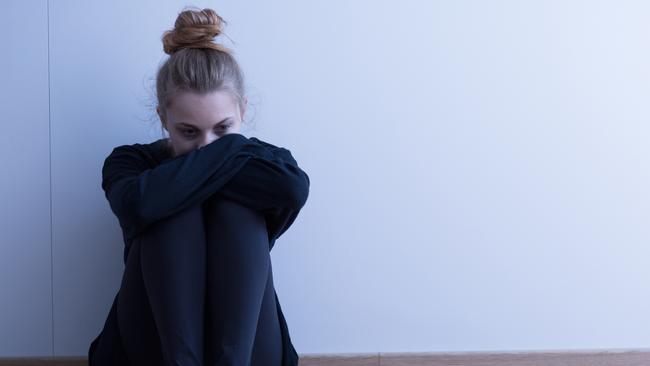Teen snooze study could unlock family harmony
It’s one of parents’ biggest bugbears: teen children who won’t go to sleep and then can’t get up for school in the morning. But it may not just be their screens keeping them awake.

Education
Don't miss out on the headlines from Education. Followed categories will be added to My News.
New research is trying to unlock hormonal change in teen body clocks, compelling them to go to bed late, struggle to get to morning classes and create angst for parents who see it as teen defiance.
Monash University’s Turner Institute for Brain and Mental Health is recruiting more than 220 children for a study with international experts in adolescent sleep, mental health and chronobiology which is the study of body clocks.
The Circadian Light in Adolescence, Sleep, and School (CLASS) Study is a longitudinal study funded by the Australian Research Council which will track Year 7 students for two years.
Project leader Dr Julia Stone said the study was interested in how the changes in sleep, body clock, and light may influence mood, and thinking over time, including changes in NAPLAN scores from Year 7 to Year 9.
“This natural shift makes many teenagers prefer going to bed late at night, and to wake late in the morning. However, school starts early, and many teenagers do not get enough sleep during school nights. Insufficient sleep could affect teens’ mood and thinking,” she said.
“During this time the sleep wake cycle changes and biologically it delays them going to sleep and they are tired and grumpy in the morning.
“People think that they are being lazy but they have a biological change affecting when they are awake and asleep.
Dr Stone said it was thought the changes occurred between the ages of 12 and 15 but the research would seek to determine this.

A second part of the study would also look at the link between light exposure. Dr Stone said while there was clear evidence of the circadian changes the research would also look at the impact of light from screens such a phones, computers and televisions.
While sleep habits change over people’s lives, adolescence and between the ages of 12 and 15 is associated with a change in circadian rhythms.
“Sleep is one of the three pillars of health; the timing and duration of sleep changes throughout a person’s life, especially in adolescence. For example, for most teenagers, biological and psychosocial changes mean that they go to bed later than in childhood.”
She said the study was a first to look at the link between light exposure and the change in the body clock longitudinally and how it relates to various aspects of teenager’s lives.
Teens in the study will not be asked to change their sleep patterns or use of electronic items. READ MORE:
ELITE BOYS' SCHOOL ADRESSES SEXISM CLAIMS
COMMUNITY MOURNS LOSS OF RICHMOND HIGH PRINCIPAL
HOW TO HELP YOUR CHILD SETTLE INTO HIGH SCHOOL
Rather, the research will be observational.
“Based on what we learn from the CLASS study, in future studies we might be able to find ways to help teenagers who are having problems with their sleep, or learning, or wellbeing. But first, we need to learn more about these things as teenagers grow and change,” she said.
The teens recruited to the study will have to track their sleep patterns, attend yearly assessments at Monash University and provide saliva samples which will test their melatonin.
Dr Stone said melatonin is the naturally occurring hormone that is cyclically released in anticipation of darkness and is credited with preparing humans to sleep. In general, melatonin release follows approximately a 24-hour daily cycle, ideally eliciting consistent sleep patterns from day to day.
Interested in joining the program? CLICK HERE TO JOIN
